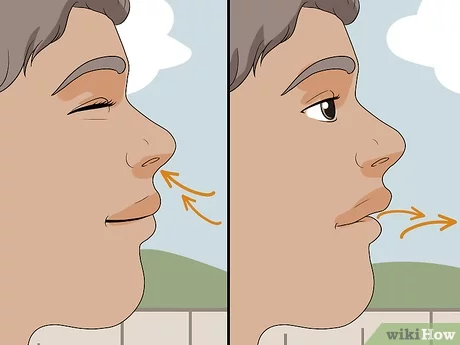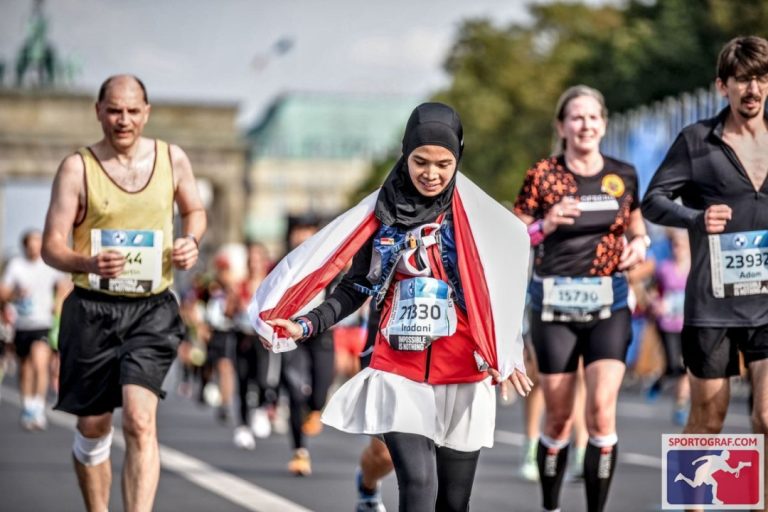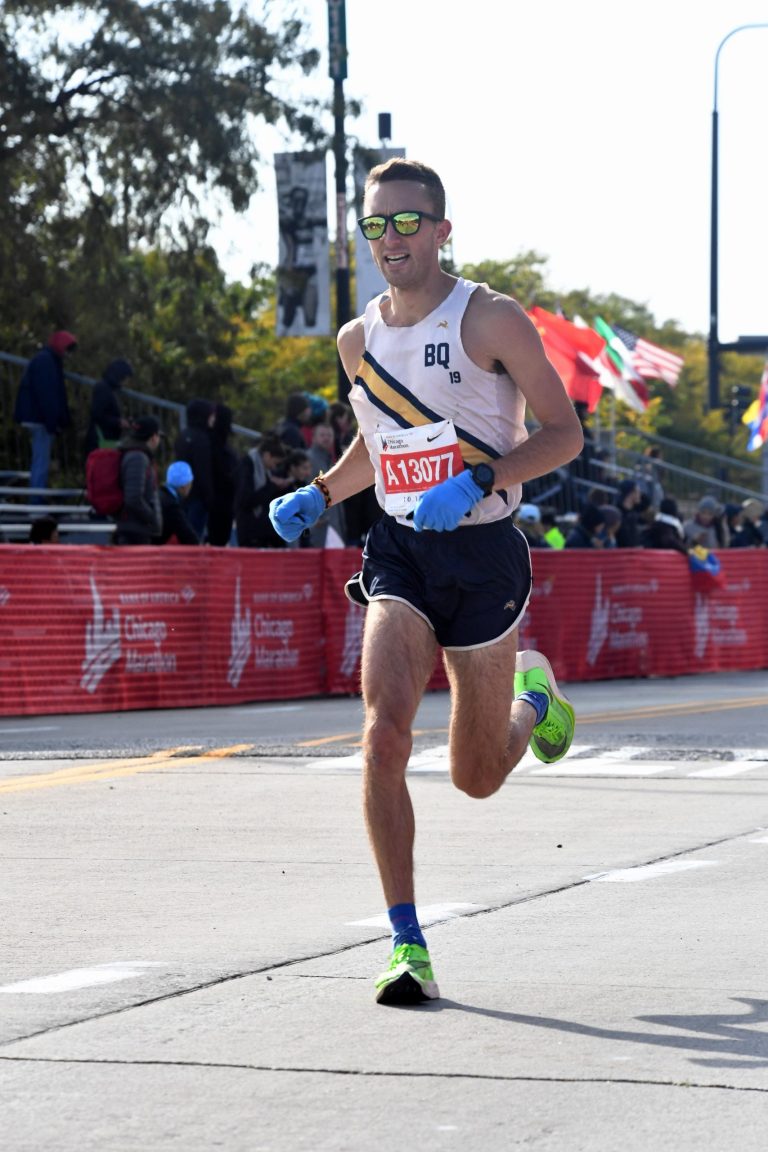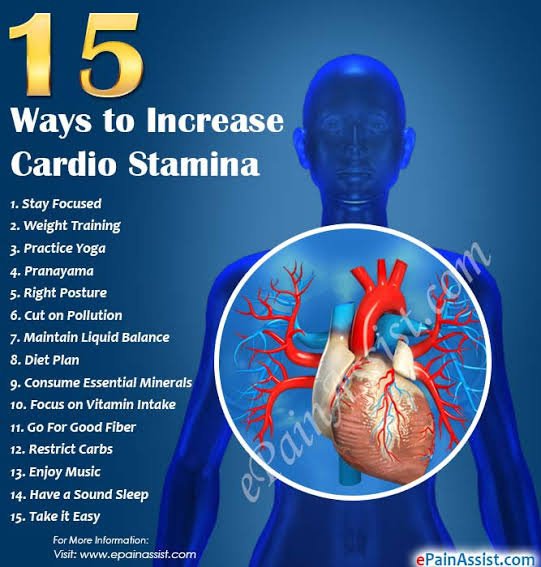How Can I Run Without Getting Tired?
To run without getting tired, start with a slow pace and gradually increase your endurance by incorporating interval training and strength workouts into your running routine. This will strengthen your muscles and help your body adapt to longer runs without feeling fatigued.
Running is an excellent form of exercise that can help improve cardiovascular health, boost mood, and increase overall fitness levels. However, running can also be challenging for those who are just starting or have limited endurance. If you want to run without feeling tired, it is essential to build up your endurance gradually.
Starting with a slow and comfortable pace and gradually increasing your distance and speed over time can help you build up your stamina. In addition to regular running, incorporating interval training and strength workouts into your routine can also help you improve your endurance and run without getting tired.

Credit: www.youtube.com
The Importance Of Good Form
Good form is crucial to running without getting tired. By maintaining proper posture and technique, you can improve your efficiency and reduce the risk of injury. Focusing on proper form can also help you conserve energy and run longer distances with less fatigue.
Good form is essential for runners looking to run longer distances without feeling tired. This is especially important for beginners who are just starting out on their running journey. Running with good form helps you to conserve energy and run more efficiently, which can make running feel more effortless. The two most important aspects of good form are proper footstrike and maintaining good posture.Proper Footstrike
The way your foot strikes the ground is one of the most important parts of running with good form. Ideally, you want to hit the ground with the middle of your foot, not your heel or your toes. Hitting the ground with your heel puts a lot of stress on your knees and can lead to injuries. On the other hand, hitting the ground with your toes can tire out your feet and calves quickly.Maintaining Good Posture
Maintaining good posture is also crucial for running with good form. You want to keep your head up, your shoulders back, and your arms relaxed at your sides. This helps you to breathe more deeply and efficiently, which in turn helps you to run longer distances without getting tired. In conclusion, running with good form is essential for runners of all levels. It helps you to conserve energy and run more efficiently, which can make running feel more effortless. By focusing on proper footstrike and maintaining good posture, you can improve your running form and run longer distances without getting tired.Gradual Progression
Running is an excellent way to keep yourself physically fit and healthy. However, if you’re starting out as a runner, the biggest challenge you may face is dealing with fatigue. Fortunately, there are several ways to avoid getting tired while running, and one of the most effective ways is through gradual progression.
Start Slowly
When beginning your running journey, it’s essential that you start slowly. The idea here is to condition your body systematically without over-straining it. One of the most common mistakes beginner runners make is to start too quickly and enthusiastic. Doing this can lead to fatigue, exhaustion, and even injuries. Instead, begin slowly and steadily, and gradually work your way up as your endurance increases.
Increase Distance And Intensity Gradually
When you run, increasing the distance and intensity of your runs gradually helps your body adjust to the new demands. It is tempting to push yourself too hard to see quick results. However, doing this puts you at risk of overexerting your body, which leads to fatigue, injuries, and burnout. Therefore, it’s essential to follow a structured training program that involves gradually increasing the distance and intensity of your runs. This method conditions your body to adapt and allows you to build endurance slowly and sustainably.
In conclusion, gradual progression is an effective way to avoid getting tired while running. By starting slowly, increasing your distance and intensity gradually, you can condition your body to run efficiently. Remember always to listen to your body and rest when necessary to avoid injuries and burnout.
Breathing Techniques
Running is an excellent exercise, but it can be challenging when you get tired quickly. If you’re a beginner or a seasoned runner, there are various techniques you can use to run efficiently. One such technique is breathing correctly. Breathing is a natural process, but it’s essential to learn how to breathe correctly during exercise. In this blog, we’ll discuss some breathing techniques that can help you run without getting tired.
Deep Breathing
The first and most crucial breathing technique is deep breathing. This technique involves taking deep, slow breaths to fill your lungs with oxygen. Deep breathing helps reduce the feeling of exhaustion and increases stamina. When you breathe deeply, your lungs expand and contract fully, allowing more oxygen to enter your bloodstream. This technique involves inhaling through your nose and exhaling through your mouth.
Finding A Rhythm
Another important breathing technique is finding a rhythm while you run. You need to sync your breathing with the pace of your steps. If possible, breathe in and out with each step. This technique will help you maintain a steady pace and avoid getting out of breath. It’s essential to find a rhythm that works for you, so experiment to see what breathing pattern works best.
Other Tips
- Breathe in through your nose and out through your mouth
- Focus on exhaling completely to get rid of stale air
- Avoid shallow breathing and take deep, full breaths
- Avoid slouching, which constricts your breathing
- Practice breathing techniques during your regular workouts
By using the correct breathing techniques, you can run further and more efficiently without getting tired easily. Practice these techniques regularly, and you’ll be able to run longer distances with ease.
Strength Training
Running is an easy and effective way to stay fit and healthy. However, many people give up on running because they get tired easily. There are many reasons why this happens, but one solution is strength training. Strength training can help you build the necessary muscles and endurance to run longer and stronger.
Building Core Strength
One of the most important things you can do to improve your running stamina is to build core strength. Your core muscles are responsible for maintaining good posture, stabilizing your body, and helping you maintain a consistent stride. A strong core can also help you avoid injuries. Some effective exercises for building core strength include:
- Planks
- Crunches
- Leg raises
- Mountain climbers
Incorporating Resistance Training
In addition to building core strength, you should also incorporate resistance training into your workout routine. Resistance training involves using weights or resistance bands to challenge your muscles and make them stronger. This type of training is especially effective for improving your leg muscles and endurance. Some exercises you can try include:
- Squats
- Lunges
- Deadlifts
- Calf raises
By incorporating these exercises into your routine, you will notice an improvement in your running stamina in no time. However, it’s important to start slow and gradually increase the intensity of your workouts to avoid injury. Additionally, make sure to fuel your body with nutritious foods and get plenty of rest and recovery time. With dedication and consistent effort, you can run without getting tired and enjoy all the benefits of this fantastic form of exercise!
Other Tips And Tricks
Other tips and tricks can also help you run without getting tired. It is important to make sure you are wearing proper shoes, staying hydrated, and taking care of your body both before and after your run.
Wearing Proper Shoes
Wearing proper shoes is crucial to make sure your feet are supported while running. You should invest in a pair of running shoes that fit you properly, are comfortable, and have good support for your arches. Make sure to replace your shoes every 300-500 miles to ensure they are still providing the proper support for your feet. Without proper support, your feet will become tired and you may get injured.
Staying Hydrated
Staying hydrated is important for all physical activity, including running. Make sure to drink water before, during, and after your run to prevent dehydration. A good rule of thumb is to drink about 17-20 ounces of water 2-3 hours before your run and then about 7-10 ounces of water every 10-20 minutes while running. After your run, make sure to drink water to replenish fluids lost through sweat.
Other tips and tricks include warming up properly before your run, incorporating strength training into your workout routine to build endurance, and keeping a consistent running schedule to build up your stamina over time. Remember, running without getting tired is all about taking care of your body and giving it the support it needs to perform at its best.

Credit: m.youtube.com

Credit: www.wikihow.com
Frequently Asked Questions For How Can I Run Without Getting Tired?
How Do You Not Get Tired While Running?
To avoid getting tired while running, make sure to properly warm up before starting and gradually increase your pace. Focus on your breathing and maintain good form. Stay hydrated and fuel your body with proper nutrition. Take breaks if necessary and listen to your body.
Why Do I Get Tired Quickly When I Run?
Quick tiredness during running can be due to various reasons like lack of physical fitness, overtraining, improper breathing, dehydration, inadequate sleep, poor nutrition, and medical conditions. It’s essential to identify the cause and consult a doctor if necessary. Gradual training and following a healthy lifestyle can help improve endurance and reduce fatigue.
Why Can’t I Run Without Getting Tired?
Running is a high-impact, demanding exercise that requires physical endurance. A lack of endurance and conditioning in the muscles, respiratory system, and cardiovascular system can contribute to fatigue and tiredness while running. Adequate nutrition, hydration, and rest, along with gradually increasing intensity levels in exercise, can help build endurance and gradually improve performance.
Conclusion
Stamina is built over time, and it’s essential to start small and gradually increase the length and intensity of your running routine. Additionally, incorporating strength training, proper nutrition, and maintaining a consistent sleep schedule can tremendously impact your performance. Running without getting tired requires patience, dedication and consistency.
With the appropriate training and mindset, you too can run faster and longer. Keep pushing, it pays off in the end!






